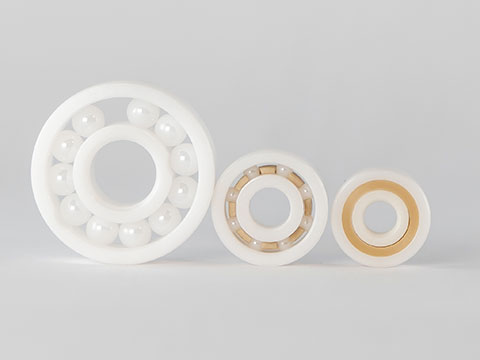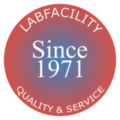
Posted to News on 7th May 2024, 09:00
The role of ceramic bearings in hygienic and efficient food packaging applications
Chris Johnson, managing director at SMB Bearings, explains the benefits of opting for ceramic bearings in food packaging applications.

In the food and beverage packaging industry, the demand for high-quality products is inseparable from the need for impeccable hygiene and efficient processing. Traditional bearing materials often fall short in meeting these critical requirements. Enter ceramic bearings - a solution that offers not only enhanced performance but also addresses the stringent hygiene standards demanded by food and beverage environments.
Food packaging settings demand the highest levels of hygiene to ensure products are not just safe for consumption but also maintain their quality. Traditional steel bearings, often prone to corrosion, wear, and particulate generation, present a contamination risk that is unacceptable in these sensitive environments.
Unplanned stops in filling, packaging, or palletising assets in food processing can have cascading negative impacts that severely limit operational efficiencies. These interruptions not only disrupt production schedules but can also lead to compromised product quality and increased costs. In the pursuit of maintaining hygienic conditions, cleaning procedures can inadvertently damage seals and promote bearing corrosion, undermining the bearings' integrity and longevity.
Furthermore, excessive re-greasing, often a consequence of attempting to mitigate wear and friction, can inadvertently contaminate products and packaging materials. In this intricate ecosystem, ball bearings play a critical role. Their malfunction due to inadequate maintenance or improper cleaning practices can trigger a domino effect of delays, reduced productivity, and compromised food safety standards.
Ceramic bearings, with their non-reactive and non-porous nature, offer a robust solution. They remain impervious to chemical reactions, thereby eliminating the risk of contaminant introduction and safeguarding the integrity of packaged goods.
Characteristics that count
Ceramic bearings exhibit exceptional resistance to corrosion, a paramount trait when considering exposure to cleaning agents and washdown procedures. This characteristic ensures that the bearings maintain their structural integrity over extended operational cycles, thus contributing to prolonged equipment lifespan and minimised downtime.
Food packaging processes often involve exposure to elevated temperatures. Ceramic bearings thrive in these conditions due to their high thermal stability. This property prevents dimensional distortions and ensures consistent performance even under temperature fluctuations, crucial for maintaining precision in packaging operations.
What's more, ceramic bearings' ability to operate without lubrication at lower speeds, translates into lower friction and reduced heat generation during operation. This contributes to energy savings and improved efficiency in the packaging line, making them an asset in high-throughput environments.
Navigating design engineering challenges
In the realm of food packaging lines, bearings may encounter a multitude of challenges, including extreme temperatures and exposure to excessive moisture and chemicals.
In such settings, the bearings employed need to adhere to a variety of unconventional standards. The presence of contaminants further compounds the situation, manifesting in various ways. In the meticulously regulated domain of food and beverage production, the introduction of contaminants can result in substantial losses in production efficiency. Moreover, the copious moisture stemming from regular washdown cycles can lead to the displacement of lubricants from the component.
Likewise, the bearings must withstand chemical exposure arising from detergents and sanitisers, which can trigger corrosion and expedite the wear of components. For applications that are too corrosive for 440 stainless steel ball bearings, or where the load is too high for 316 grade stainless steel bearings, full ceramic bearings in zirconia or silicon nitride are advised. These bearings are also suitable for much greater temperature extremes.
Ceramic bearings are often costlier to manufacture, so design engineers must evaluate the benefits they bring to the specific packaging application and determine if the enhanced performance and longevity justify the investment.
Alternatively, plastic acetal resin bearings present a cost-effective choice and are also resistant to corrosion. Where bearings are suitable for applications involving low loads and speeds. To enhance resistance against corrosion and withstand extreme temperatures, it is possible to employ alternative materials for the rings or cages, such as polyether ether ketone (PEEK), polytetrafluoroethylene (PTFE), or polyvinylidene fluoride (PVDF).
The slender nature of bearings often used in packaging applications necessitates meticulous attention to the circularity of the rings themselves. Consequently, the manufacturing procedure demands an exceptionally precise approach to ensure optimal circularity in both rings, along with favourable noise levels within the bearing. This invariably mandates the utilisation of fine grinding and machining techniques, complemented by an exceedingly high standard of quality in both the manufacturing process and the raw materials employed. Any imperfection in the formation of the rings, no matter how minuscule, can impede the smooth operation of the bearing, resulting in excessive noise and disturbances along the food packaging line.
Ceramic materials, though highly resilient, have inherent brittleness. Design engineers must strike a balance between optimising load-bearing capacity and safeguarding against potential fractures or surface damage during high-impact events.
In the evolving landscape of hygienic and efficient food packaging, ceramic bearings emerge as a transformative force. Their corrosion resistance, temperature stability and friction-reducing properties make them pivotal in safeguarding product quality while optimising packaging line performance. However, the journey towards full integration entails addressing challenges related to precision manufacturing, load-bearing capabilities and cost-effectiveness. By leveraging the distinct characteristics of ceramic bearings and conquering these design engineering hurdles, the food packaging industry can embrace a new era of efficiency, reliability and product integrity.
Unit 15 Ventura Business Park
Broadshires Way
OX18 1AD
UNITED KINGDOM
+44 (0)1993 842555





